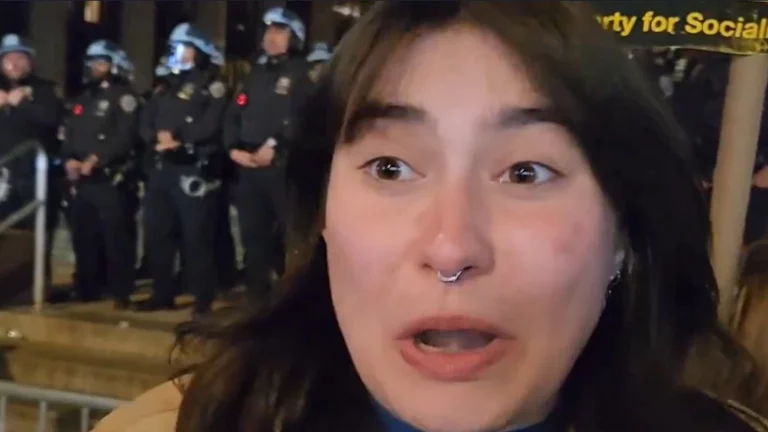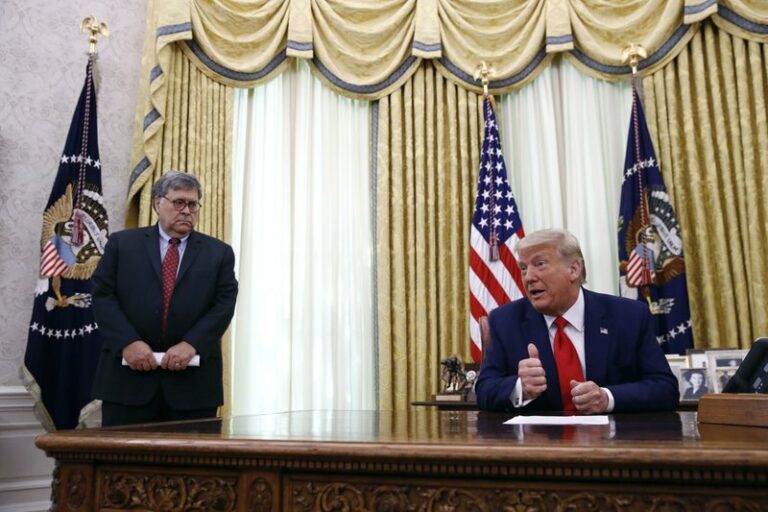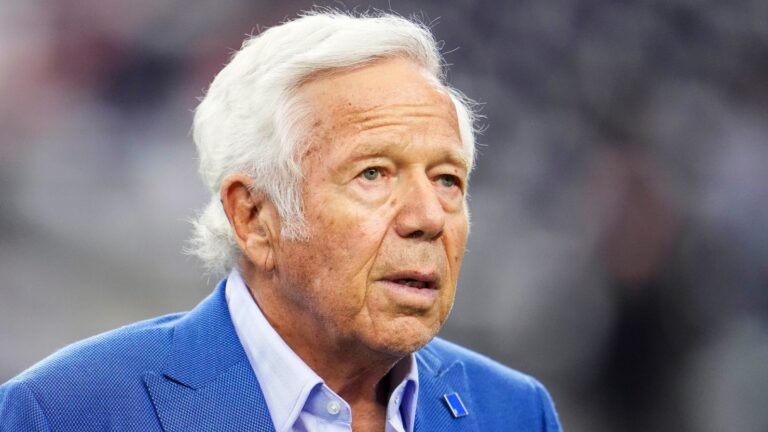 [By: Shimmy Blum]
[By: Shimmy Blum]
What Can We Do About the “OTD” Phenomenon?
The highlight of the Sunday program – and, for many, the highlight of the convention – came at the closing keynote session. While not new, particularly for Agudah conventions, the topic of the off the derech phenomenon is always gripping. It is painful and real, and unfortunately shows no signs of subsiding. Every year brings new challenges, and new discussions are necessary. The packed hall, and the thousands who followed this discussion electronically, bore live testimony to that.
“OTD”: Why Is It Happening and What Can We Do About It? was moderated by Rabbi Avi Shafran, Director of Public Affairs at Agudath Israel of America. Rabbi Shafran opened the session discussing the importance of empathizing with the pain and confusion of teens and adults at risk, or those who have already R”l veered. “They are all our children,” Rabbi Shafran exclaimed, “and have no less a claim to our goodwill than anyone else.”
The first presenter, Rabbi Dr. Yitzchok Lob Psy.D, a private practice psychologist in Chicago, opened up about the pain that he and his parents, Holocaust survivors, endured when his lone sister abandoned yiddishkeit decades ago. Dr. Lob explained that contrary to even his own assumptions up until several years ago, it is not necessarily children who suffered significant trauma who leave the fold. There are many possible reasons, “sometimes a slow disconnect, sometimes an explosion.”
Just as there is no uniform cause, there is no uniform antidote. Dr. Lob stressed the importance of tefillah for good children – as emphasized by many gedolim – as well as the need for parents, mechanchim and rabbanim to offer even challenging children unconditional love and support. “Whether it is with a hug, or the right look, they must always feel like we are ‘holding’ them,” Dr. Lob implored.
Answering the Questions
Rabbi Mordechai Becher, senior lecturer at Gateways, noted author, and history professor at Yeshiva University, mused how even mainstream adult members of our community are wary to sign their names on an innocuous letter to the editor. The fear of saying the wrong thing, or asking the wrong question, is certainly a lot stronger amongst insecure youth wondering about some fundamental tenet of our emunah. Rabbi Becher cited the dictum of his rebbi, HaRav Moshe Schapira, that it is incumbent upon us to fortify the tree of emunah amongst our families. “It doesn’t get transmitted by osmosis anymore,” he warned.
Like other speakers before him, Rabbi Becher stressed that there are a variety of reasons that can “break the camel’s back” and drive a child away from his or her roots. In addition to enhancing the teaching of emunah, and answering questions, Rabbi Becher advised of the importance of promoting the truth and beauty of Torah, instead of harping with a dismissive attitude towards all that we don’t promote. Children often grow up and feel that something they were taught isn’t exactly so, and then are skeptical about everything else they were taught. “An attitude of bitul can come back to bite,” he said.
Root Prevention
Rabbi Moshe Tuvia Lieff, Rav of Agudas Yisroel Bais Binyomin, delivered the final address on this topic, hitting on a broad array of vital notes. He noted that the contemporary culture and its potent nisayonos make it far more difficult for today’s children to remain ehrlich than it was in previous years. We must recognize their challenges, as well as their “heroism” when they prevail.
Citing the words of his rebbi, HaRav Shmuel Berenbaum zt”l, Rabbi Lieff stressed the importance of recognizing that unique contemporary challenges require different weapons than the battles of yesteryear. “We can’t just insulate our children; we must inculcate a pride in being Jewish,” Rabbi Lieff exclaimed. “They should feel like princes, and that going against the Torah is below their dignity.”
Rabbi Lieff also stressed the importance of recognizing that living the values of Torah is more important than the mere knowledge of Torah, or the test score of a child. Even a child who doesn’t excel in learning and/or hasmada can still appreciate living Torah values, and do good deeds on behalf of Hashem and his fellow yid. For parents, Rabbi Lieff advised, it is particularly important to constantly show children that it is they – and the time they need – that are more precious than the parents’ business or leisurely endeavors. If a child struggles in yiddishkeit, it is important for parents to validate their thoughts and feelings, even when the ultimate goal is to get them to overcome them.
The audience – in the room and around the world – listened intently, and gathered lots of food for thought. Ultimately, beyond our hishtadlus, the fate of our children is in the hands of Hashem. Before concluding his address – and the 93rd annual Agudah convention – Rabbi Lieff recited a simple tefillah at the podium: “V’heishiv lev avos al banim, v’lev banim al avosam.”
An Array of Sessions Wrap Up the Agudah Convention
Before Sunday’s keynote session began, there were several special early morning programs: a Daf Yomi shiur; an Agudah Women of America breakfast; a film presentation on the life and legacy of HaRav Nosson Tzvi Finkel zt”l; and a Yarchei Kallah on the halachos of websites and drone delivery on Shabbos by Rabbi Avrohom Lefkowitz, Rav of Kollel Bnei Torah of Lakewood.
In addition, attendees participated in four concurrent sessions, once again featuring leading community figures tackling pertinent topics. Dayan Yonason Abraham of the London Bais Din discussed the leadership profile of HaRav Avrohom Pam zt”l, and particularly his role in the foundation and development of the Shuvu network of schools for Russian Jewish olim in Eretz Yisroel. Rabbi A.D. Motzen, National Director of State Relations for Agudath Israel of America, led a captivating discussion on the growing political force of the Orthodox community. He was flocked by Aron Wieder, Majority Leader of the Rockland County Legislature; Village of Lawrence Trustee Michael Fragin; and Chaskel Bennett, member of Agudath Israel of America’s Board of Trustees.
Rabbi Bentzion Klatzko, North American College Outreach Education Director, Olami, and founder of Shabbat.com, tackled a core challenge for individuals aspiring to lead: “I want to change the world but don’t know where to turn.” A special session for women focusing on improving relationships was hosted by Rabbi Eytan Feiner, Rav of Congregation Kneseth Israel of Far Rockaway and his wife, Rebbetzin Aviva Feiner, Rebbetzin of the shul and Menaheles of Machon Basya Rochel Seminary.
Many would agree that Sunday morning at the 93rd annual Agudath Israel of America convention was the grand finale of a powerful, intriguing convention – one whose impact is sure to be felt throughout the coming year and beyond.
Photo credits: Menachem Adelman, Moishe Gershbaum and Shua Klein
Photo Essay Number 1: 93rd Annual Agudath Israel of America Convention:
Photo Essay Number 2: 93rd Annual Agudath Israel of America Convention:
MODERATOR Rabbi Avi Shafran, Director of Public Affairs, Agudath Israel of America
Rabbi Dr. Yitzchok Lob Psy.D., Licensed Clinical Psychologist, Private Practice, Chicago, IL
Rabbi Mordechai Becher, Senior Lecturer, Gateways
Rabbi Moshe Tuvia Lieff, Rav, Agudath Israel Bais Binyomin






























(YWN World Headquarters – NYC)






5 Responses
Its not one size fits all. In Europe too, there were lots of kids who became modern , what we call today OTD. We need to recognize that not all kids see thinks the same way. SOme will swallow all the nonsense you feed them hook , line and sinker. WOnderful. Others will question the world being created in 6 days, why electricity cannot be used on Yom Tov, why one has to wear tzitsis every day even if not wearing arba kanfos, why glatt is necessary, why separate seating at family events on Shabbos, why no music, no internet, no English studies. When those questions arise, Chanoch Hanaar AL PI Darko. If Chassidsh doesn’t fit, try Litvish/Yeshivish. If LItvish doesn’t work, try modern orthodox/College. If modern Orthodox doesn’t work, try conservative. Eppes Yiddishkiet. Ahavas Yisroel above all. And a working member of Klal Yisroel.
If we call a kid a shaygets for going to movies or growing a Tshup, than off he goes OTD.
And that’s what has been happening. So foo they go, to the Village or now Hipster Wmsbg, go to raves, Fri night parties, smoke pot, do drugs and become totally useless and worthless. Instead, get them a High scholl GED, teach them a trade, plumber, electrician, truck driver, and let them be good Jews productive in society and love them as they are.
Not one speaker suggested this. Not one speaker was an OTD who could speak to his experience. More head in the sand syndrome and self laudatory congratulations on a wonderful program. More hypocrisy and BS> No solution in sight.
@1 Well said.
There are some real problems that cause the OTD problem. If they really want to try doing something about it, they should speak to a variety of those affected and learn the reasons.
Suppositions and burying their heads in the sand is never a solution. This is just meaningless talk.
#1. Good points. One of the issues among Chassidim who go off the Derech is that they’ve been taught a lot of negatives about other non Chassidic Frum groups, so other streams seem to them to be the same as going all the way off. While this is not always the case, it often is.
#1 and if Conservatism doesn’t fit should they try Reform?
I’m not saying I don’t agree with you that if Chassidish doesn’t fit they should try Yeshivish/Litvish but that doesn’t mean one can pick any life that only smells of Judaism.
Everyone can choose their derech to serve Hashem within Torah law. Some Modern Orthodox circles and certainly Conservatism have descended the slippery slope of blatantly disregarding halacha that doesn’t suit their agendas.
And I agree with you about the hypocracy going on but in a different way. I believe when one goes to movies that are being shown nowadays one can be called shaygetz. I don’t beleive it is hypocracy (but I also don’t think it is constructive). Movies today are not movies they are rotting trash. Seldom are there normal movies but I doubt they are being shown in theatres ( I’m not talking about IMAX movies in museums).I’m talking about hypocracy when rabbonim do not speak out against voting for politicians that support immorality, they are helping create an environment that is poisoness for our children. Then you can make all type of asifus but that is only talk, not action. They have to learn from Rabbi Avigdor Miller zt”l. He was emes.
#1, you are rambling a bit. Try conservative? Let’s not suggest that. Also Rabbi Lief talked about the importance of accepting the OTD individual even under embarrassing situations. He does talk about recognizing where these kids are holding in life and we should react accordingly.